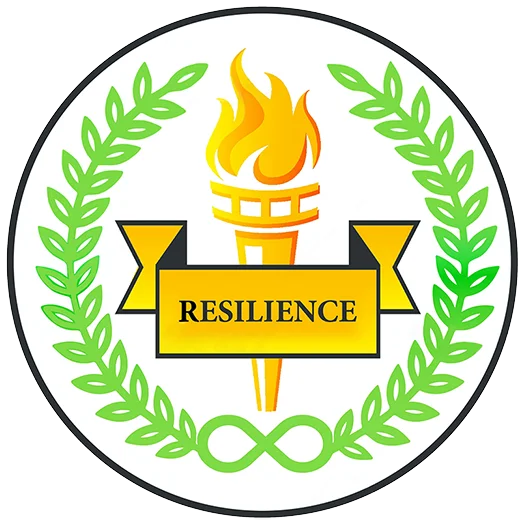From a Parent’s Perspective
My alarm going off at 6:00 am on school mornings made me want to roll over, pull the covers over my head and go back to sleep. I knew exactly how my morning would play out. Waking the kids and getting them ready for school was never easy; I knew it was going to be a struggle. There would be threats of losing phone privileges, TV privileges, video games, and being grounded for life. My husband worked third shift most of the time, so he wasn’t usually home until after the kids were at school. Of course, on the mornings he was home to help everything went smoothly; he could not understand why I was so frazzled when I had to do it by myself.
My son went to school for the social aspect of it; he did not like homework or authority. He was somehow able to keep up his grades, and he was never held back due to “social promotion”, so he could stay with his peers. He slept through class, except on test days. He would wake up, take the test, pass the test without studying or doing the homework. He would then put his head down and go back to sleep. He had behavior problems at home and school. We tried changing schools and teachers, but nothing helped, and eventually when he was seventeen, he withdrew from high school. When he took his GED, his test scores were so high he was told if he applied for college he could enroll in Honors courses.
My daughter, however, had a different problem. She had no behavioral issues, but she was painfully shy and she had separation anxiety. In elementary school my daughter cried nearly everyday when I put her on the bus. It broke my heart and — between you and me — she was not the only one crying! She nearly failed kindergarten because she would not talk to her teacher for a required verbal test. I remember thinking that my son was advancing to the next grade because he was sociable. On the other hand, my daughter was going to be held back because she was not.
My daughter continued to struggle through elementary, middle, and high school and my son never took school seriously. I spoke to counselors, teachers, and principals trying to find answers as to how I could help my kids so that they would be successful and would look forward to going to school. They offered advice and I gladly accepted all help offered to us, but any changes were only temporary. The morning chaos always returned.
My kids were complete opposites of one another; in middle school, my son was diagnosed with ADHD and Oppositional Defiant Disorder. When my daughter was in high school, she was diagnosed with Inattentive ADD. Hoping it would help, I tried to get my son to take his prescribed medication, but with his ODD, he always refused.
Looking back, I feel bad that I was so hard on my daughter. When she told me she could not focus I told her she was not trying hard enough; I had no idea she had ADD. It was later explained to us that because she was quiet rather than hyper it was more difficult to detect. She was prescribed Adderall after her diagnosis. It did help her focus, but she did not like the way it made her feel.
My husband and I were always involved in their education, from volunteering in the classroom to going on field trips and showing up for special events. But I blamed myself for my kids’ struggles, wondering if I did this or that wrong. (Mom guilt is real!)
When I learned about Social Emotional Learning, I realized how much this kind of teaching could have helped my children. Although my kids’ personalities are quite different from one another, SEL’s varied curriculum could have helped each of them with their individual struggles. They would have enjoyed school more after being given the kind of tools they needed to be more successful academically and socially.
Resilience Inc.’s Social Emotional Learning program offers five core curriculum topics.
- Self-Awareness
- Self-Management
- Social-Awareness
- Relationship Management
- Goal Setting & Effective Decision Making
I believe that my son would have benefited from learning the curriculum in the Self-Management and Goal Setting topics. My daughter could have improved her social skills from the Relationship Management and Social-Awareness curriculum while learning focusing tips from the Self-Management topic. I wish this kind of learning was available to them while they were in school, and I want to ensure that other children do not struggle the way my kids did when there is a way to help.
Regardless of a student’s academic standing or struggles, Social Emotional Learning can be beneficial for everyone, including children that may seem to be doing well both academically and socially. It can even help adults like me. As an adult, I put pressure on myself to be successful in my career and as a wife and a mom. I recently enrolled in college classes and my fear of failure can be overwhelming. But by practicing SEL, I am learning to focus on progress over perfection.
Today, my daughter is twenty-five and my son is thirty-one; they are both doing well and are happy and healthy. Those chaotic mornings are far behind us and most of their privileges have been restored — even the “grounded for life” punishment has been removed!
My daughter has blessed me with a beautiful granddaughter; she is four years old and does not have a care in the world. I hope by the time she starts school, SEL will be a part of her curriculum, which will hopefully save my daughter the same aggravation and stressful mornings I experienced. I also want my granddaughter to have a greater opportunity to enjoy school and her childhood through SEL learning.
But for now, I will set my alarm, roll out of bed, make a cup of coffee, and wait for contact from my daughter or granddaughter to see how their morning went.

